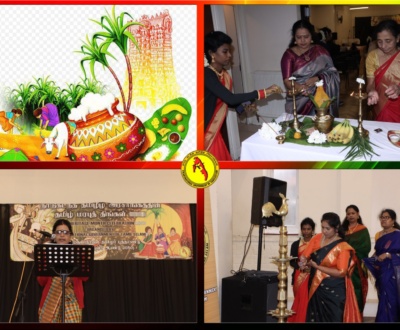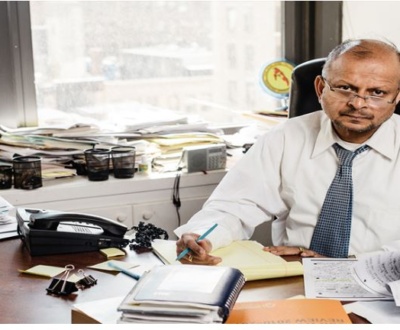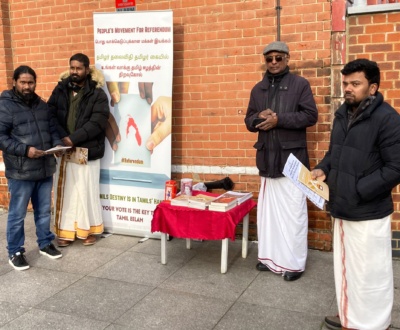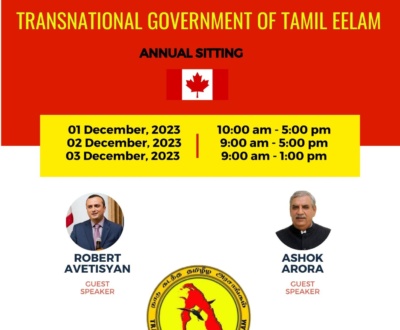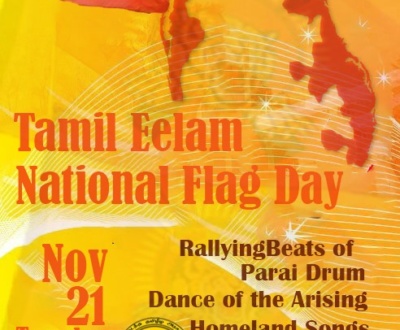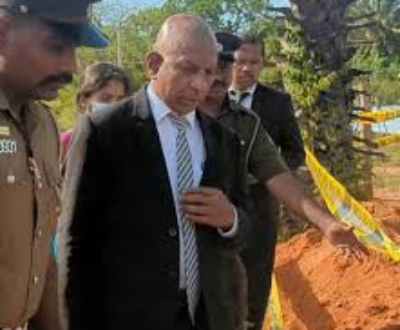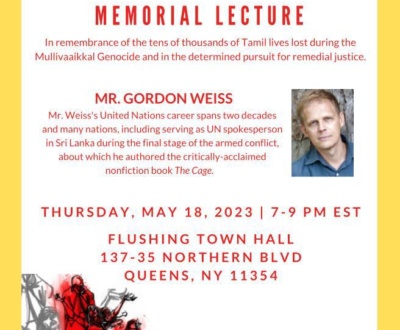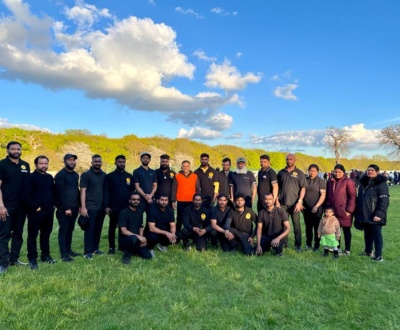TGTE - Homeland தாயகம்
Sri Lanka: Accountability for Mass Atrocities – Hybrid Mechanism will not work – says Experts at a UN event !
- July 2, 2015
- ENGLISH NEWS
As the United Nations High Commissioner for Human Rights Zeid Ra’ad Al Hussein is preparing to release his report on Sri Lanka for the mass atrocities committed against the Tamil people by the Sri Lankan State, an expert panel at a side event at the UN Human Rights Council stated that a Hybrid Mechanism will not deliver justice to the victims of mass atrocities.
The expert’s panel was moderated by:
Professor Narsinghen Hambyrajen, Former Minister Counselor of the Trade Division of the Permanent Mission of Mauritius in Geneva and Professor of Law at the University of Mauritius.
Panelists include:
1) Honorable Richard Rogers, former Head of the Defence Support Team at the Cambodia Khmer Rouge Tribunal and Attorney for Global Diligence;
2) Professor Sornarajah, Visiting Professor at the Centre for Human Rights, London School of Economics.
A statement by the Prime Minister of Transnational Government of Tamil Eelam, Mr. Visuvanathan Rudrakumaran was also distributed at the event.
Here are some of the highlights:
Mr. Rogers:
1) Mr. Rogers dismissed the prospect of domestic trial, saying that it would likely be the victor’s justice rather than a real accountability process. He further pointed out that the Sri Lankan Government and the Army are too powerful and too closely implicated in the crimes for this to work.
2) He posed the following question: If the High Commissioner recommends the hybrid option to Sri Lankan Government can the UN insist upon procedural guarantees that are sufficient to protect the court from political interference and personal bias? He said the short answer, in his view was “most probably not.”
3) He spoke of his experience with the hybrid tribunal in Cambodia, the frustrations caused by constant political interference with the process. He believes that there would be similar interference if a hybrid tribunal was to be established in Sri Lanka given the links that potential defendants are likely to have within the political system and within the armed forces.
4) Mr. Rogers also warned of the risk that the hybrid court would get bogged down in years of tedious negotiations between the Government of Sri Lanka and the UN and the UN might eventually give in to the demands of the Sri Lankan Government.
5) He concluded by saying a hybrid court may serve the Sri Lankan Government and even the UN who may then claim that justice has been rendered, but it would remove any meaningful change of real justice being done.
Professor Sornarajah:
Professor Sornarajah stated that such a hybrid tribunal is unsuitable for Sri Lanka. Besides the fact that international crimes must be tried by international tribunals, the present situation in Sri Lanka is not conducive to the functioning of such a tribunal. He identified the following circumstances:
1) The local judiciary is heavily tainted and is not independent. The Government has removed successive Chief Justices, provoking the International Bar Council to denounce the lack of an independent judiciary in Sri Lanka.
2) The members of the present administration, including the President who was Minister of Defence during the civil war, held office in the administration of former President Rajapakse. Being complicit, even if not indicted, they are likely to be biased. They would be judges in the cases against them or their associates. Nemoiudex in suacausa.
3) Former President Rajapakse is bound to be named as defendant for reasons of command responsibility. His two brothers are also likely to be defendants. Rajapakse is able to demonstrate the support he has among Sinhalese chauvinistic groups by holding massive meetings.
4) In that context, the present regime lacks stability to hold a prolonged trial of war criminals. A return to the anti-Tamil climate of the past is likely.
5) In the context of the heavy militarization that has taken place in Sri Lanka, it is unlikely that the armed forces will permit their leaders or personnel being tried by a hybrid tribunal in Sri Lanka. The spurt of militarization took place under Rajapakse. His loyalists still hold office in the forces.
6) The trials, if held in Sri Lanka, will provoke a Sinhalese nationalist backlash making reconciliation impossible. They may result in further violence against Tamils. Reconciliation, which is the aim of such trials, will not eventuate.
Mr. Visuvanathan Rudrakumaran:
A statement by the Prime Minister of Transnational Government of Tamil Eelam, Mr. Visuvanathan Rudrakumaran entitled “No Will and No Neutrality: Sri Lanka” was distributed to the attendees. In the statement, it was stated:
1) An important element in justice is neutrality. When a State itself stands accused as the perpetrator of the international crimes, any involvement of that State in transitional justice vitiates the neutrality. An accused cannot be the sole judge or a co-judge in the legal proceedings against him / her.
2) Last March – 5 years after the first mass atrocity of the 21st century – the UNHRC finally authorized an investigation by the office of the UN High Commissioner for Human Rights (OISL). We have been assured that the report itself will be “strong” and that it undoubtedly will lay out the facts of what took place in significantly greater detail than has been done before. Names of perpetrators may even be released. We believe the report would serve as the basis for fuller investigation and prosecution. What the High Commissioner’s recommendations will include is not yet known, but in the case of North Korea it was recommended last year that the Security Council refer North Korea to the International Criminal Court, even though North Korea is not a signatory to the Rome Statue.
3) Hybrid tribunals can be useful, where a state has a will, but lacks capacity to deliver justice. But that is not case with respect to Sri Lanka.
4) The recent promotion of Army Commander Sarath Fonseka as Field Marshal and the appointment of former Military Commander Mr. Jegath Das as Ambassador which was heavily criticized by the Human Rights Watch, by the “new” regime in Sri Lanka, and their continued refusal to give access to the OISL to Sri Lanka to meet with the victims of war are just a few examples of a clearly lack of will on the part of Sri Lankan state under the “new” regime to deliver any justice for Tamils.
5) It is true that a hybrid tribunal functioning in an ethnically neutral environment would allow the victims to witness justice in the making. However, in the present case, as implicitly acknowledged by the UNSG’s Panel of Experts, there is no environment in the island of Sri Lanka for Tamils to get justice.
